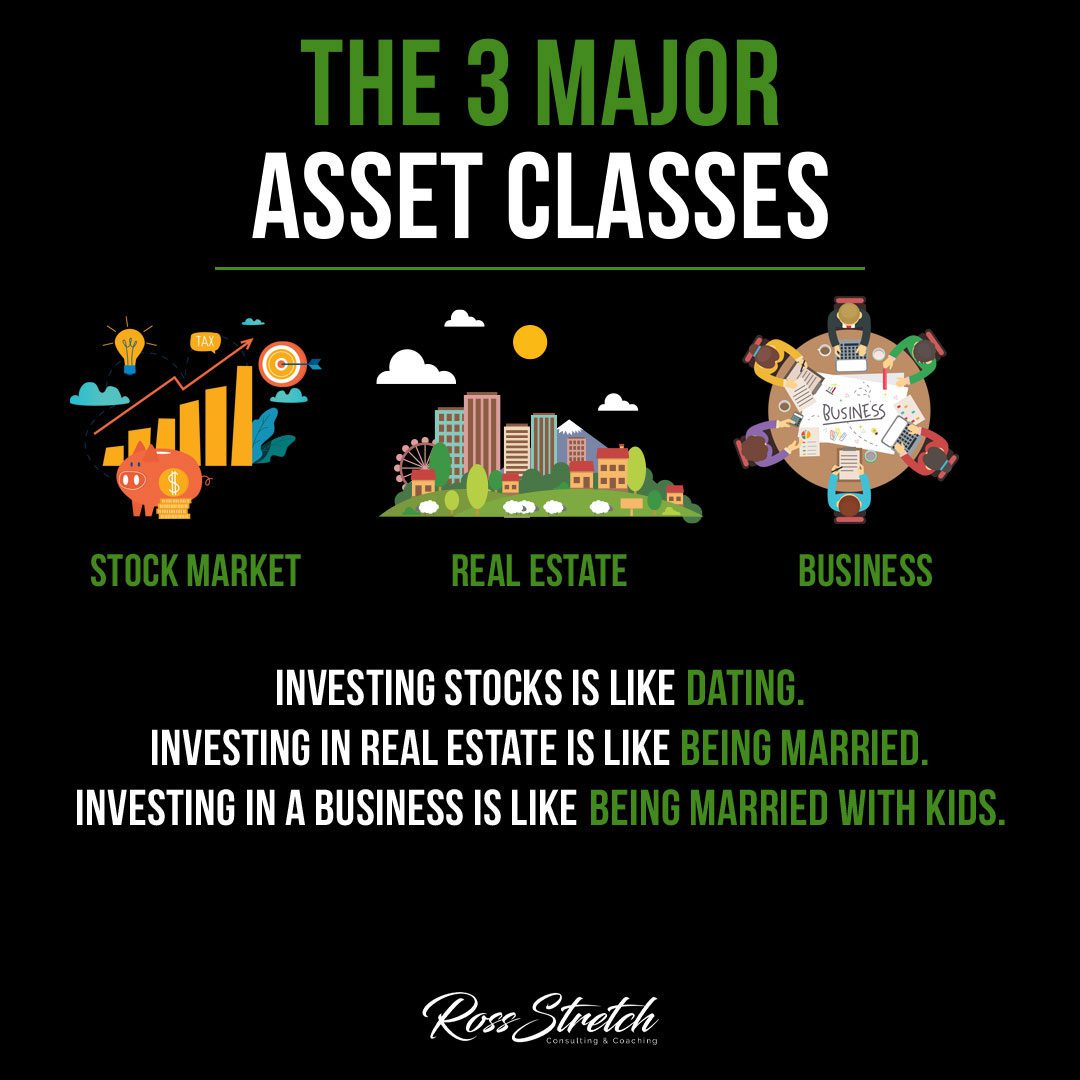Investment is as much about numbers and charts as it is about understanding the level of commitment and risk you are ready to undertake. Just like relationships, each investment asset class requires a different level of involvement, commitment, and risk tolerance. This guide explores the three major asset classes—stock market, real estate, and business—and offers a fresh perspective on how to approach them.
The Stock Market: The Dating Scene of Investments
Investing in stocks is akin to dating. It’s an entry-level commitment, often characterized by its liquidity and volatility—just like the ebb and flow of dating.
Exploring the Stock Market
When you buy stocks, you’re essentially purchasing a small part of a company. The stock market allows you the flexibility to invest in different sectors with the option to exit quickly if things don’t go as planned.
Real Estate: The Marital Home of Investment
Real estate investment is likened to a marriage. It’s a long-term commitment, often requiring a substantial upfront investment, just like a marital home.
Understanding Real Estate Investments
Investing in real estate involves purchasing property to generate rental income or to sell at a profit. It requires due diligence, a significant capital outlay, and a readiness to deal with maintenance issues and market fluctuations.
Business Ownership: The Full-Fledged Family
Investing in a business is compared to being married with kids. It demands the highest level of commitment, time, and resources, with the potential for substantial rewards.
The Business Investment Journey
Starting or investing in a business means you are ready to take on the responsibility of growth and the well-being of the company and its employees. It’s a hands-on investment that requires constant attention, just like raising a family.
Conclusion: Choosing Your Investment Path
Your investment journey should align with your commitment level, risk tolerance, and long-term goals. Whether you prefer the fluidity of the stock market, the solidity of real estate, or the hands-on approach of business ownership, understanding these asset classes is crucial for making informed decisions.


